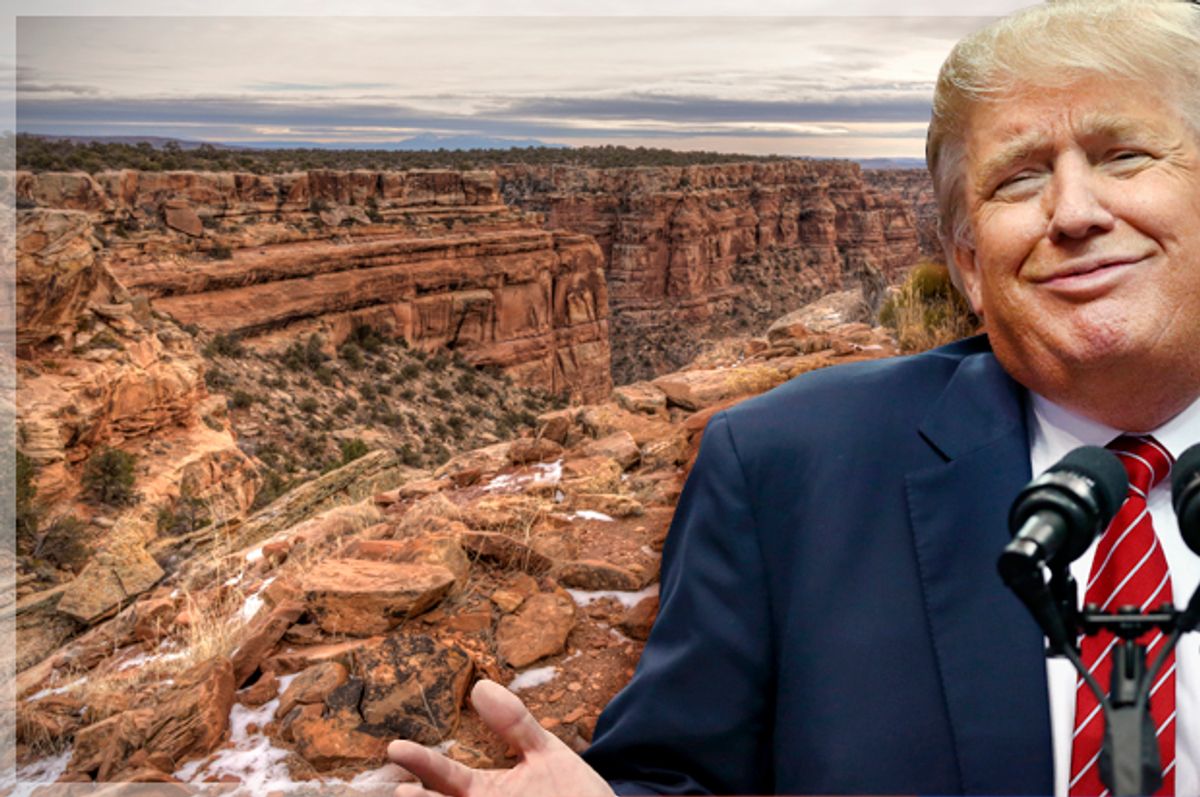The Republican-controlled Senate just delivered a stunning defeat to a White House-backed effort to overturn federal rules meant to rein in dangerous methane emissions on public lands.
On Wednesday afternoon, amidst a growing hoopla over the surprise firing of FBI Director James Comey the previous evening, three Republicans in the Senate broke with their party to hand Trump an unexpected defeat on his contentious effort to repeal the Obama-era regulations. Republican Sens. Susan Collins of Maine, John McCain of Arizona, and Lindsey Graham of South Carolina, joined with Democrats to deliver the surprise blow to Trump and the fossil fuel industry.
The Senate’s failure to kill limits on methane emissions from oil and gas production on federal lands dealt a significant blow to Trump's goal of reducing strict federal oversight of the drilling industry. The president had hoped to use the Congressional Review Act (CRA) to reverse the regulations imposed by the Obama administration and to prevent similar regulations from being introduced in the future. In February, the House passed a resolution to repeal the methane leak rule, by the slimmest margin for any of the resolutions the House GOP has passed this year under the CRA. Since taking office, Trump has signed 13 such Congressional Review Act resolutions to overturn Obama-era regulations. Congress had used the 1996 law just once before Trump took over the presidency.
The Bureau of Land Management (BLM) methane waste prevention rule Trump targeted was issued last November and updated 30-year old regulations governing the venting and leaking of natural gases like methane, a potent greenhouse gas. Energy companies frequently burn off vast supplies of methane at drilling sites because it is less profitable to sell than oil. Yet the Obama administration had concluded the amount of methane burned off each year from drilling operations is enough to provide electricity for nearly 740,000 homes. If you include the total amount of natural gas that is leaked, and about 5 million homes a year could be powered.
“Today is a victory for our public lands and for the health of families across America, and a defeat for Donald Trump, corporate polluters, and their friends on Capitol Hill,” Sierra Club Executive Director Michael Brune said in a statement in response to the Senate vote. “People across the country will continue to resist and hold Congress and Trump accountable for any efforts to put the profits of polluters before the health of our families and our communities.”
Despite support from Senate leadership and the oil and gas industry — including a six-figure, multimedia advertising campaign that targeted reluctant Republicans — some GOP lawmakers balked at a full embrace of the Trump administration’s climate skepticism. Getting the Trump administration to repeal the BLM rule had been a top priority of the oil and gas industry.
"While I am concerned that the BLM rule may be onerous, passage of the resolution would have prevented the federal government, under any administration, from issuing a rule that is ‘similar,’" John McCain said in a statement.
The rule has caused a bit of a showdown between Republicans in the Senate.
Republican Rep. Rob Bishop of Utah, chairman of the House Natural Resources Committee and sponsor of the House’s legislation, said that his fellow Republicans in the Senate had “no rational reason not to vote for it.”
“Sen. Graham doesn’t live in the West, and doesn’t understand these issues, clearly,” Bishop told The Hill earlier this year.
Republican Senator John Barrasso of Wyoming, chairman of the Senate Committee on Environment and Public Works who supported the resolution to kill the rule, called on Interior Secretary Ryan Zinke to act unilaterally to revoke it, Reuters reported. But such efforts involve a laborious bureaucratic process that is ultimately vulnerable to legal action from environmental groups.

Shares